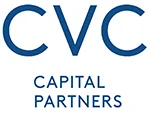The Wall Street Journal today sang the praise of corporate stock buybacks, outlays that reached a whopping $338B during the first-half of the year. Apple, IBM, Exxon Mobil, Pfizer and Cisco Systems led the charge.
The buybucks buttressed the roaring stock market as investors "applaud repurchases as an appropriate way to return cash to shareholders by buying their stock or putting excess funds to work, akin to dividends but without the tax bite," reported the paper.
What about the broader economy? The picture is much less rosy. Some buyback cash could have been allocated for job creation and outlays to bolster productivity.
A Shell financial executive told The Economist (Sept. 13) that "investors like executives to feel a creative tension between the pull of capital investment, dividends sand buybacks."
That tension, however, "can spill into an irrational hunger for cash returns." To its credit, Shell investors more in absolute terms than any other European company.
The British publication also noted that policymakers had hoped the current low-interest rate environment would spur corporate investment.
There is a sign of hope. The buyback bonanza may be peaking. A Merrill Lynch survey of investment managers conducted in July found a big majority of respondents thought firms were underinvesting. That was the biggest reading in a decade.
The Wall Street gravy train may be slowing down.
It's time for US companies to get back to business.


 Edelman handles Viking Holdings, the river and ocean luxury cruise line that plans to raise $1B via an IPO priced in the $21 to $25 per share range.
Edelman handles Viking Holdings, the river and ocean luxury cruise line that plans to raise $1B via an IPO priced in the $21 to $25 per share range. Teneo is handling the initial public offering of CVC Capital Partners, one of Europe’s largest private equity firms with nearly $200B in assets under management.
Teneo is handling the initial public offering of CVC Capital Partners, one of Europe’s largest private equity firms with nearly $200B in assets under management. Brunswick Group represents Endeavor Group Holdings as it agrees to go private via its acquisition by Silver Lake technology investment firm, which is handled by Edelman Smithfield.
Brunswick Group represents Endeavor Group Holdings as it agrees to go private via its acquisition by Silver Lake technology investment firm, which is handled by Edelman Smithfield. Tod Donhauser, a nine-year veteran of Edelman, has joined H/Advisors Abernathy as managing director and head of its San Francisco office.
Tod Donhauser, a nine-year veteran of Edelman, has joined H/Advisors Abernathy as managing director and head of its San Francisco office. Intelligent Group Ltd, a Hong Kong-based financial PR firm, has priced its initial public offering of 1.9M shares at $4, which is the low end of the $4 to $5 range.
Intelligent Group Ltd, a Hong Kong-based financial PR firm, has priced its initial public offering of 1.9M shares at $4, which is the low end of the $4 to $5 range.


 Have a comment? Send it to
Have a comment? Send it to 
No comments have been submitted for this story yet.